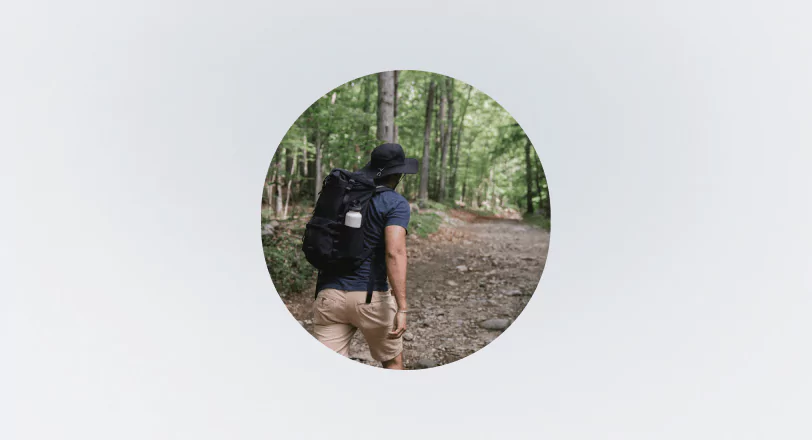Chargebacks were created to protect customers from fraud or billing mistakes. But for tour businesses, they’ve become a growing problem. More people are abusing the system to get their money back after going on tours they clearly attended.
This type of abuse is known as “friendly fraud,” and it’s becoming more common. A guest might claim they never received the service, didn’t authorize the charge, or don’t recognize the transaction on their statement.
Even when you’ve done everything right, the bank often rules in the customer’s favor unless you know exactly how to respond.
For tour operators, this leads to lost revenue, hours spent gathering evidence, and a lot of frustration trying to navigate a system that rarely works in your favor. And because you’re selling an experience instead of a physical product, it’s even harder to prove the service was delivered.
This article explains what fake chargebacks are, why they’re a growing threat to tour operators, how much they can cost, and most importantly, what you can do to protect your business before and after they happen.
And if you rely on online bookings and card payments, this is an issue you can’t afford to ignore.
What Is a Fake Chargeback, Really?

Not every chargeback is a scam, but a growing number of them are.
A fake chargeback happens when a customer disputes a legitimate transaction to get their money back, even though they received the service.
This type of fraud is often called “friendly fraud.” It might sound harmless, but it can seriously hurt your business.
Here’s how it usually works: A guest books a tour online, pays with a credit or debit card, takes the tour, and then files a chargeback with their bank days or even weeks later.
They might claim the charge wasn’t authorized, say the service wasn’t delivered, or report that they don’t recognize the name on their statement.
Sometimes it’s intentional, with someone trying to get a free experience. Other times it’s due to confusion, like a family member using a card without telling the cardholder or the customer forgetting about the charge.
In either case, the money is pulled from your account, and it’s up to you to prove the claim is false.
Here’s the frustrating part: You’re not just losing the payment. You could also be hit with chargeback fees and penalties. Repeat disputes can even put your merchant account at risk.
It’s a growing problem across industries, but tour and experience businesses are especially vulnerable. That’s because it’s harder to provide concrete proof that the guest showed up, received the service, and was satisfied.
In short: A fake chargeback is when a guest gets the tour and their money back. And unless you’re prepared, there’s a good chance the system will let them.
Why Tour Businesses Are Easy Targets

If you’ve ever felt like your tour business is especially vulnerable to fake chargebacks, you're not wrong.
Compared to product-based businesses, experience providers face more challenges when trying to prove that a service was delivered.
This is why scammers, and sometimes even honest customers, find it easier to dispute charges from businesses like yours.
1. You Sell Experiences, Not Products

When you sell a physical product, you can show tracking numbers, delivery confirmations, and return records. But if you’re selling a city walking tour or a zipline adventure, there’s no box to scan or signature to collect.
Proving that someone actually experienced the service can be tricky, especially if you don’t have airtight documentation.
2. The Customer Is (Almost Always) Believed

Credit card companies and banks usually side with the customer. When someone claims a charge was unauthorized or says they didn’t receive what they paid for, the default assumption is that they’re telling the truth unless you can prove otherwise.
If you don’t have the right type of evidence, such as signed waivers, check-in records, or GPS logs, your case is likely to be dismissed quickly.
3. Delayed Chargebacks Make It Worse

Customers can file chargebacks weeks or even months after the tour. By the time the dispute comes in, you might not even remember the situation clearly.
If you’re not keeping organized records for every booking, it becomes nearly impossible to fight back.
4. Many Tour Operators Don’t Know the Rules

Most small tour businesses don’t have a dedicated finance or legal team. You’re busy running tours, managing bookings, and keeping guests happy, not studying chargeback policies. That lack of awareness is exactly what makes you an easy target.
5. Scammers Know How to Exploit Weak Spots

Unfortunately, there are people out there who know the system better than you do. They know what language to use when filing a chargeback. They know how to make it sound convincing. And they count on the fact that most small operators won’t push back.
The result? More losses, more stress, and a sense that the system isn’t built to protect you.
But here’s the good news. Once you understand why you’re vulnerable, you can start taking steps to protect your business and stop chargeback fraud before it starts.
The Real Cost of Fake Chargebacks

When a fake chargeback hits your business, it’s not just a one-time refund. The damage runs deeper, and the true cost can add up quickly.
- You lose the sale: That part’s obvious. You lose the money from the original booking. If it was a high-ticket tour or a group booking, the financial hit can be big.
- You pay chargeback fees: Most payment processors charge a fee every time a dispute is filed, usually between $15 and $50 per chargeback. Even if you win the case, you often don’t get that fee refunded.
- You waste valuable time: Fighting a chargeback means gathering receipts, emails, waivers, tour logs, and other evidence. If you’re a small operator, that’s time taken away from selling more tours or managing your team.
- Your reputation can take a hit: Some chargebacks stem from guests who were unhappy but never gave you a chance to fix the issue. If those same people leave negative reviews while also disputing the payment, you’re dealing with both lost income and long-term brand damage.
- You risk your merchant account: Too many chargebacks can flag your business as “high risk.” Your payment processor might raise your fees, hold your funds, or in some cases, terminate your account. Without a way to accept card payments, your entire booking flow can fall apart.
- You feel helpless: That constant sense of unfairness, the feeling that someone took advantage of you and got away with it, can wear you down. It’s more than financial. It’s personal.
How to Fight Back (And Actually Win)

Fighting chargebacks might feel like going up against a wall, but you have more power than you think.
The key is knowing what the banks want to see, preparing ahead of time, and responding quickly when a dispute comes in.
Here’s how to improve your chances of winning.
1. Collect Strong Proof Before the Tour Even Starts

The best time to fight a chargeback is before it happens. Start by building a paper trail for every booking.
- Booking confirmation emails that clearly show the guest’s name, date, and time.
- Include terms and conditions that cover cancellation, refund, and no-show policies, and make sure guests agree to them before checkout.
- Signed waivers or check-in forms to prove attendance.
- Screenshots or system logs from booking platforms.
- Photo evidence (e.g. a group photo before or during the tour).
Even small touches, like using digital signatures or collecting ID at check-in, can help you later.
2. Respond Quickly to Disputes

When you receive a chargeback notice, time matters. Most processors give you 7–14 days to submit your evidence.
Don’t delay. Prepare your documents, write a clear summary of what happened, and submit it within the deadline. Include all relevant records such as email threads, waivers, photos, receipts, and your terms of service.
3. Focus on the Right Kind of Evidence

Banks don’t want stories. They want facts. That means:
- Date and time of service
- Confirmation the guest agreed to your terms
- Proof the guest attended
- Proof the guest never canceled or asked for a refund
- Any communication from the guest that contradicts their claim
Make it easy for the reviewer to see your side.
4. Use Tools That Make the Process Easier

If you use booking platforms or payment tools like Stripe, Square, or FareHarbor, check if they offer built-in chargeback support. Some tools automatically track guest communication and help organize your responses.
Also consider using tour management software that logs check-ins, collects waivers, and stores signed terms. The more organized your system, the easier it is to win.
5. Don’t Be Afraid to Push Back

Many small operators assume the chargeback process is rigged, so they don’t even try to fight. But friendly fraud only works when businesses stay silent.
If you’ve got the evidence, make your case. Even if you don’t win every time, fighting back sends a message to both scammers and the platforms you work with that you take your business seriously.
Prevention Is Protection

The best way to deal with fake chargebacks? Stop them before they happen.
You can’t prevent every bad actor, but you can make it much harder for someone to dispute a legitimate charge. Think of it like locking your front door. You might not stop every break-in, but you’ll stop the opportunists.
Here’s how to make your business less of a target.
1. Make Your Terms Clear and Visible

Before a guest ever clicks “Book Now,” they should know exactly what they’re agreeing to. That includes:
- Your cancellation and refund policy
- No-show terms
- What counts as a completed service
Use plain language and make sure they check a box to accept the terms. Keep a record of it.
2. Confirm Everything in Writing

Send a confirmation email immediately after booking. It should include the tour details (date, time, location), your contact info, and the terms they agreed to. This gives you a digital trail that’s hard to argue with later.
3. Use Digital Check-In or Waivers

Have guests check in digitally or sign a waiver before the tour begins. This can be done on a phone or tablet and creates a timestamped record showing the guest was there.
Bonus: if your system allows it, use GPS tracking or log guide notes that confirm attendance.
4. Make Your Business Name Clear on Statements

One common reason for friendly fraud is that customers don’t recognize your business name on their credit card statement.
Make sure your billing descriptor is clear and matches the name guests know you by. If your tour brand is “Wild River Rafting,” don’t let your statement show up as “WRR Holdings LLC.”
5. Communicate with Guests Before and After the Tour

Simple follow-ups, such as a reminder email before the tour or a thank-you message after, help confirm that the guest participated. These messages can also be used as evidence in a dispute.
6. Train Your Team to Document the Basics

Make sure your guides or front-desk staff understand the importance of checking guests in, noting no-shows, and recording any issues. You don’t need anything fancy, just consistent notes you can refer to if needed.
7. Use Secure, Reliable Payment Platforms

Stick with trusted providers like Stripe, Square, or platforms built for tour businesses. They often provide better chargeback support, logs, and tools that help you fight disputes more effectively.
The more systems you have in place to track what happened and when, the stronger your position will be if a guest ever tries to claim they weren’t there or that you didn’t deliver what you promised.
You don’t need a legal team. Just a few good habits and the right tools.
Final Thoughts
You might not be able to stop every scammer, but you can build a system that protects your business.
That means being clear with your policies, documenting your bookings, collecting evidence along the way, and knowing how to respond when a chargeback happens. It also means believing that your time, your team, and your tours are worth protecting.
Take the steps, build your defense, and show both the system and the scammers that you’re no longer an easy target.





